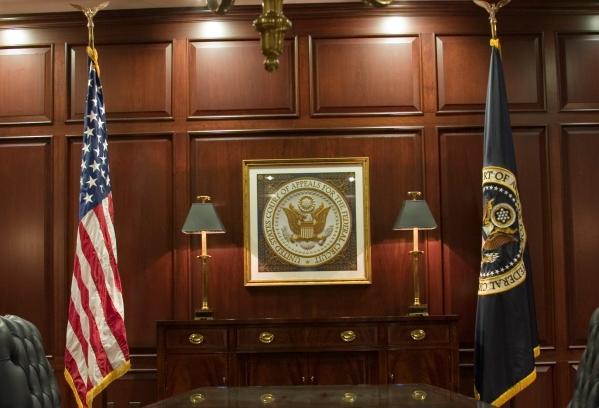
The United States Supreme Court signaled skepticism about broad software patents Monday when it ordered reconsideration of an online advertising patent. The high court asked the United States Court of Appeals for the Federal Circuit to reconsider its decision approving the patent in light of a March Supreme Court decision restricting patents on medical diagnostic techniques.
The online ad patent, granted to a company called Ultramercial, covers the concept of allowing users to watch a pre-roll advertisement as an alternative to paying for premium content. Ultramercial has demanded licensing fees from several online video sites, including Hulu and YouTube. One target of Ultramercial's legal threats, a company called WildTangent, challenged Ultramercial's "invention" as merely an abstract idea not eligible for patent protection.
A new machine
The Supreme Court has ruled several ideas to be outside the bounds of what can be patented, including an algorithm for converting between binary number formats, the concept of hedging against the risk of commodity price changes, and the process of adjusting the dosage of a drug based on measured levels of a particular chemical in a patient's blood. WildTangent argued that Ultramercial's patent was so abstract that it did not qualify for patent protection under these precedents.
But in a September 2011 decision, the Federal Circuit (which has jurisdiction over all patent appeals) upheld the patent. Chief Judge Randall Rader wrote for the court that the Ultramercial patent "does not simply claim the age-old idea that advertising can serve as currency. Instead [it] discloses a practical application of this idea."
We've written before about this court's belief that math is only patentable if it's complicated. Similarly, in the Ultramercial decision, the court argued that the patent was valid because implementing its claims was "likely to require intricate and complex computer programming" and because the patent involved a "specific application to the Internet and a cyber-market environment." The "extensive computer interface" required to practice the patent renders it non-abstract, Rader wrote.
The Federal Circuit also rejected the argument that the patent ran afoul of the Supreme Court's traditional rule against patenting mathematical algorithms. "A programmed computer contains circuitry unique to that computer," Rader wrote. "That 'new machine' could be claimed in terms of a complex array of hardware circuits, or more efficiently, in terms of the programming that facilitates a unique function."
Do-over
When the Supreme Court decides a case, it often asks lower courts to re-examine related cases to see if the high court's reasoning in the new opinion changes the outcome. A week after the Supreme Court invalidated a medical diagnostic patent back in March, it ordered a reconsideration of gene patents in light of that opinion. Now software patents like Ultramercial's will also get a fresh look under the same precedent.
This week's decision to send the Ultramercial case back for another review doesn't necessarily mean a majority of justices disagree with the original decision. But Julie Samuels of the Electronic Frontier Foundation argues that it does at least mean the Supreme Court thinks its March decision is relevant to the validity of such patents. This can only be good news for critics of broad software and business method patents.
We asked Samuels to weigh in on how the Federal Circuit ought to evaluate the Ultramercial patent. She said that the Supreme Court's March decision "made clear that tying patentable steps to an otherwise unpatentable idea does not make it patentable." The concept of giving people premium content after they watch ads is an unpatentable, abstract idea, she said. Judge Rader argued that "complex computer programming" required to implement the patent made it non-abstract, but Samuels countered that "while it might be complicated, such programming merely represents the type of conventional steps that can't save an otherwise abstract idea."
Samuels also argued that "merely tying an abstract idea to the Internet" isn't enough to render it patentable. "Everything we're doing is online" these days, she said. Under the reasoning of the original Ultramercial decision, people can "take all kinds of abstract ideas, say it's happening on the Internet, and get a patent."
Still, Samuels told us there are no easy answers. "I don't envy the judges" deciding these cases, she said. "It gets complicated." She said that one important principle was that "things that you can accomplish in your brain" aren't eligible for patent protection.
Of course, the obvious question is whether all software patents would be ineligible for protection under that rule. After all, all computer programs consist of mathematical formulas that could, in principle, be performed by a human being with a pencil and paper.
"There's a good argument that all software is too abstract to be patented," she said. Indeed there is; it's one we've been making for several years.
reader comments
30